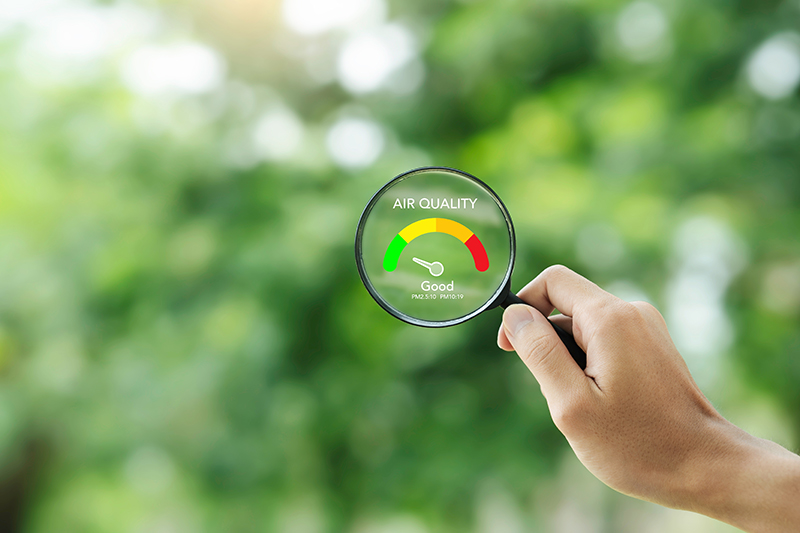The air we breathe has a large impact on our well-being, especially within our homes. Good indoor air quality is essential for maintaining a healthy lifestyle, but poor indoor air quality can harm our bodies. In this blog, we delve into the importance of air quality and how it can affect the body. We also look at the role of air purifiers and HVAC systems in your home. By understanding these factors, you can take steps to create a healthier living space.
The Importance of Good Indoor Air Quality
Maintaining good indoor air quality is crucial. Breathing clean air indoors is essential for maintaining your respiratory health. Good indoor air quality helps reduce the risk of respiratory issues. It also reduces discomfort associated with airborne pollutants and exposure to allergens like pollen, dust, dander, and mold. This is particularly helpful for those with allergies or asthma. It can ease symptoms and improve quality of life. Clean air contributes to a sense of well-being. It promotes better sleep, concentration, and comfort in your home.
How Poor Indoor Air Quality Affects the Body
Poor indoor air quality can impact the body in several ways. Exposure to indoor air pollutants can lead to respiratory problems. These problems could include coughing, wheezing, shortness of breath, and chest tightness. Prolonged exposure could worsen existing conditions such as asthma. Allergens and irritants present in indoor air can trigger allergic reactions. It can cause symptoms like sneezing, runny nose, itchy eyes, and skin irritation. It can also worsen existing health conditions. This can be serious for those with respiratory ailments or compromised immune systems. Breathing polluted air can lead to fatigue, discomfort, and unwellness.
Air Purification Solutions for Improved Indoor Air Quality
Air purification solutions play an important role in enhancing indoor air. They mitigate the adverse effects of poor air quality on the body. Consider the following strategies to improve the air quality in your home:
- High-Efficiency Particulate Air (HEPA) Filters. HEPA filters are very effective at capturing small particles and allergens. This can reduce the amount of pollutants in the home.
- Activated Carbon Filters. These filters remove odors, VOCs, and other gaseous pollutants from the air. This can lead to a fresher and cleaner indoor environment.
- Ultraviolet (UV) Light Purifiers. UV light purifiers neutralize airborne pathogens such as bacteria, viruses, and mold spores. This prevents spread and reduces the risk of respiratory infections. Make sure to research the type you are buying, as some UV light purifiers are capable of producing ozone, which can decrease air quality.
- Air Purification Systems. Whole-house air purification systems use various methods as a house air purifier. Some of these are compatible with HVAC systems.
- Houseplant Allies. Certain houseplants can help clean your air. These plants include spider plants, peace lilies, and snake plants. They help to reduce airborne toxins and enhance indoor air quality.
- Proper Ventilation. Enhance your home’s ventilation by using exhaust fans and opened windows. Increasing airflow helps with the circulation of fresh air.
Contact Us
Good indoor air quality is paramount for maintaining a healthy home environment. Understanding the importance of clean air and how it affects the body is important. By implementing effective solutions, you can breathe easily and create a nurturing space. If you would like more information on home purification systems, contact us today. Using air purification in your home can improve your indoor air and your well-being.

